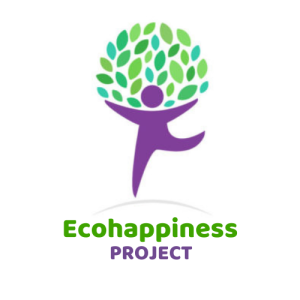What is a Poetry Walk?
Content by Sandi Schwartz, Ecohappiness Project
The main goal of a nature poetry walk is to soak in the beauty of our surrounding environment and then turn that experience into something creative that we can treasure. Writing poetry requires inspiration, and nature is the perfect backdrop for us to find that spark.
The best way to do this is to use our five senses. Instead of just walking like you would on a typical hike, it’s important to purposely slow down and stop once in a while to take in what is all around. During my nature poetry walk, our leader asked us to stop several times along the path and think about what we saw, heard, touched, smelled, and even tasted. She encouraged us to breathe in the air deeply, to look all around us, and to bend down and feel various items along the way. This mindful exercise forces us to really stop and absorb our environment and all that it has to offer.
BENEFITS
Nature poetry walks provide so many incredible benefits:
Keeps Us Moving. Exercise in itself has so many benefits, so going on a walk gets you moving around a bit more. Be sure that you wear comfortable shoes to enjoy your time outside.
Teaches focus and mindfulness. According to the Poetry Foundation, poets look at the world the way scientists do, observing all the details to discover interesting concepts and patterns. Going on a poetry walk is a wonderful way for you to slow down and move mindfully through whatever environment you choose, whether it be the woods, mountains, beach, or your neighborhood park. You will love slowing down and noticing the simple, yet intriguing parts of nature such as a butterfly fluttering by or the scent of blossoming flowers.
Reduces Stress. Walking mindfully in nature is an incredible stress buster. It helps our bodies and minds slow down and enjoy the moment. Plus, by tapping into our five senses, we distract ourselves from our worries. Additionally, awe plays an incredible role during both the walk and while writing poetry, and awe is another tool to help us feel calmer because it helps us to view the world in a broader sense.
Helps Us Connect With Our Emotions. Experts have found that poetry is an excellent way for us to connect with and communicate our thoughts and feelings. It allows us to spend time reflecting on both our experiences and our inner thoughts. Use poetry to express yourself in new ways and to deal with big emotions. Even young children can learn to express themselves creatively through poetry. And children get to learn new writing skills, too!
Content provided by Sandi Schwartz founder of the Ecohappiness Project. Want more ideas for fun and relaxing nature activities? Grab your FREE 30-Day Eco Happiness Challenge Calendar.
SUGGESTIONS
- Be sure to bring the following supplies: notebook or journal; pencils and pens; colored pencils, markers, or crayons to sketch the scene you are writing about; and a phone or camera to snap some photos.
- Choose a destination for your walk. Try different types of places each time you go.
- Once you arrive at your spot, try to be quiet and walk slowly. Stop along the way and ask yourself what you are experiencing through each of your five senses. It’s helpful if you start to write down these observations in a chart sectioned off by each sense: sight, hearing, touch, smell, and taste.
- Enjoy the walk and go with the flow as far as what you do along the way and where you end up.
- At the end of the walk, pick a place to sit down and spend some time either writing poetry or reflecting. You can also wait until you are back in the car or home for the poetry writing time, but it’s probably more effective if they at least start it outside in nature.
Content provided by Sandi Schwartz founder of the Ecohappiness Project. Want more ideas for fun and relaxing nature activities? Grab your FREE 30-Day Eco Happiness Challenge Calendar.











